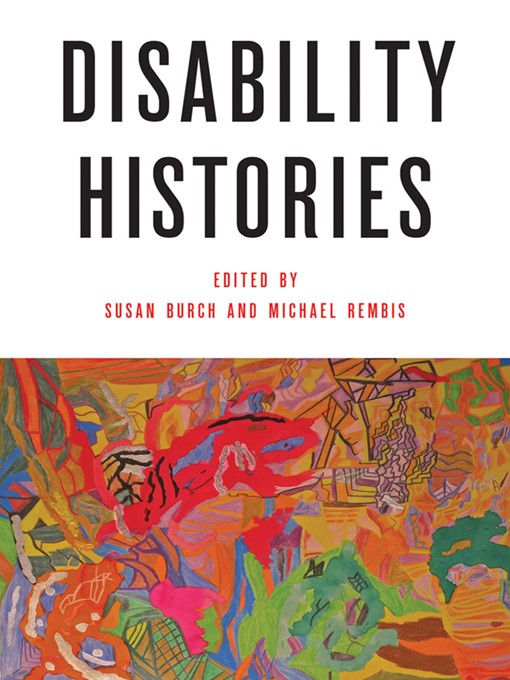Contributors delve into four critical areas of study within disability history: family, community, and daily life; cultural histories; the relationship between disabled people and the medical field; and issues of citizenship, belonging, and normalcy. As the first collection of its kind in over a decade, Disability Histories not only brings readers up to date on scholarship within the field but fosters the process of moving it beyond the U.S. and Western Europe by offering work on Africa, South America, and Asia. The result is a broad range of readings that open new vistas for investigation and study while encouraging scholars at all levels to redraw the boundaries that delineate who and what is considered of historical value.
Informed and accessible, Disability Histories is essential for classrooms engaged in all facets of disability studies within and across disciplines.
| Cover Title Contents List of Keywords Acknowledgments Re-Membering the Past: Reflections on Disability Histories—Susan Burch and Michael Rembis Part One. Family, Community, and Daily Life 1. Disability, Dependency, and the Family in the Early United States—Daniel Blackie 2. Thomas Cameron's "Pure and Guileless Life," 1806–1870: Affection and Developmental Disability in 3. Parents and Professionals: Parents' Reflections on Professionals, the Support System, and the Fam 4. Historical Perceptions of Autism in Brazil: Professional Treatment, Family Advocacy, and Autistic 5. Negotiating Disability: Mobilization and Organization among Landmine Survivors in Late Twentieth- Part Two. Cultural Histories 6. Disability Things: Material Culture and American Disability History, 1700–2010—Katherine Ott 7. The Contergan Scandal: Media, Medicine, and Thalidomide in 1960s West Germany—Elsbeth Bösl 8. "Lest We Forget": Disabled Veterans and the Politics of War Rememberance in the United States—Joh Part Three: Bodies, Medicine, and Contested Knowledge 9. Smallpox, Disability, and Survival in Nineteenth-Century France: Rewriting Paradigms from a New E 10. "Unfit for Ordinary Purposes": Disability, Slaves, and Decision Making in the Antebellum America 11. Rehabilitation Staged: How Soviet Doctors "Cured" Disability in the Second World War—Frances L. 12. The Curious Case of the "Professional Hemophiliac": Medicine, Disability and the Contested Value 13. Border Disorders: Mental Illness, Feminist Metaphor, and the Disordered Female Psych in the Twen Part Four. Citizenship and Belonging 14. The Paradox of Social Progress: The Deaf Cultural Community in France in the Ideals of the Third 15. Property, Disability, and the Making of the Incompetent Citizen in the United States, 1860s–1940 16. "Salvaging the Negro": Race, Rehabilitation, and the Body Politic in World War I American, 1917– 17. Engendering and Regendering Disability: Gender and Disability Activism in Postwar America—Audra 18. Self-Advocacy and Blind Activists: The Origins of the Disability Rights Movement in Twentieth-Ce About the Contributors Index | Honorable Mention, Best Book Award, Disability History Association, 2016. — Disability History Association|Susan Burch is an associate professor of American studies and former director of the Center for the Comparative Study of Race and Ethnicity at Middlebury College. She is the author of Signs of Resistance:...
